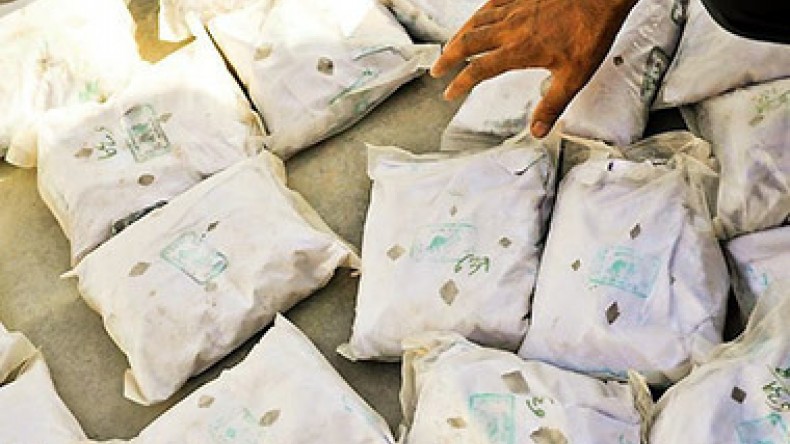
Heroin demand spikes debate on failure of US 'war on drugs'
As heroin use has increased recently in the United States and Mexico, experts are sharply divided on the achievements of the long-standing US war on drugs.
“The drug war failed a long time ago,” states the president of The Future of Freedom Foundation, Jacob Hornberger, in an interview with Sputnik Wednesday. “It has not only failed to eradicate illicit drugs from society, it has generated horrific collateral consequences, such as drug cartels, gang wars, robberies, muggings, corruption, infringements on privacy, violations of civil liberties, and asset forfeiture.”
In an opinion that is the polar opposite of Hornberger's, Jonathan Caulkins, a professor with Carnegie Mellon University’s Heinz College and co-director of the US-government-funded RAND Drug Policy Research Center, asserts that “the idea that the drug war has failed is a stupid slogan used by advocates.”
“It would be just as stupid to say that the war on cancer failed, so we should stop trying to treat people with cancer or that since burglaries still occur we should legalize burglary, or that since underage youth still get alcohol and tobacco we should eliminate age restrictions on their use,” Caulkins told Sputnik.
Caulkins underlined that prohibitions of certain drugs greatly reduces, but does not eliminate, use and abuse. He claims that recent moves legalizing marijuana in several US states “has been accompanied by a sevenfold increase in the number of daily and near daily users since the nadir in the early 1990s.”
According to the National Survey on Drug Use and Health, in 2007 the United States had 373,000 heroin users, and in 2012 the figure increased to 669,000. The spike is largely attributed to street heroin being much less expensive than prescription opiates. In the meantime, in Mexico, farmers are expanding opium poppy plots to meet the growing demand in the United States.
Caulkins noted that for decades the number one drug problem in the United States was cocaine, but in recent years the country has seen a large decline in the drug's popularity. At the same time, over the last 15 years there has also been an increase in the prescription, use and abuse use of various pain relieving medicines, particularly synthetic-opioid pain relievers such as oxycontin.
“As states have finally taken measures to control diversion of those medicines to unsupervised use, some who became addicted to those opioid pain relievers are turning to heroin,” Caulkins explained.
Jacob Hornberger pointed out that the reasons why people “wish to ingest mind-altering substances” is not relevant in the administration of government policy. He states the key principal to guide any policy regarding drug use is personal rights, and, to follow his logic, an individual's use of drugs cannot be legally considered to be any business of government.
In 2014, the enacted federal drug war budget totaled approximately $25 billion, according to the White House Office of National Drug Control Policy (ONDCP).
“It is time to end this failed and destructive paternalistic program,” Hornberger told Sputnik.
The war on drugs was declared in the United States in 1971 by the then-President Richard Nixon, who increased the size and presence of federal drug control agencies dramatically. Washington has continually allocated billions of US dollars every year in a failed attempt to eliminate drugs, with lawmakers frequently admitting they have used various substances for recreational use themselves.
Newsfeed
Videos






























